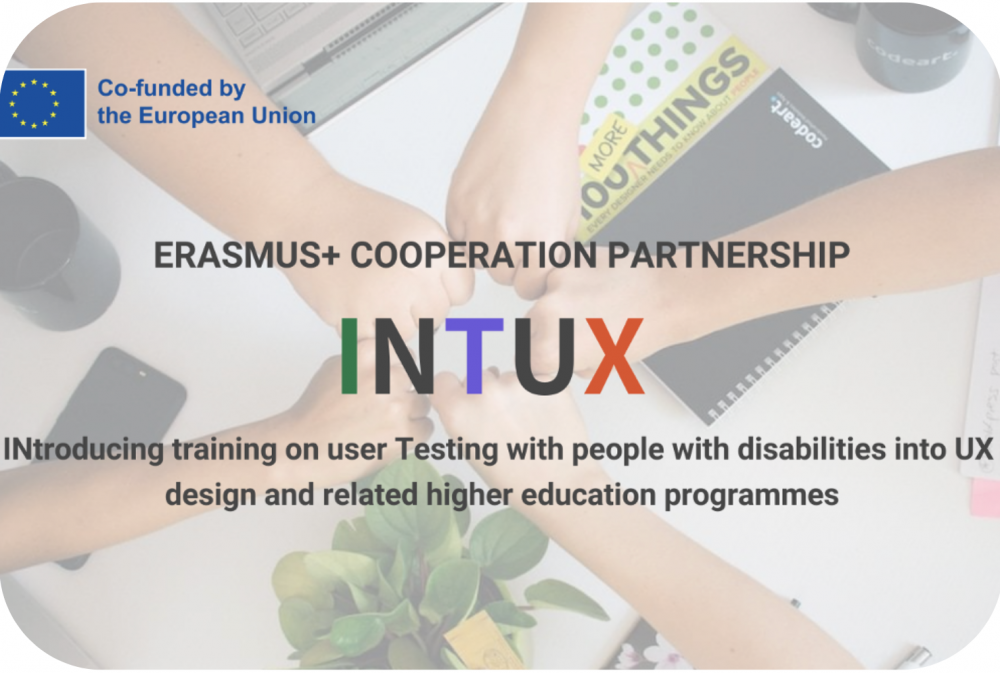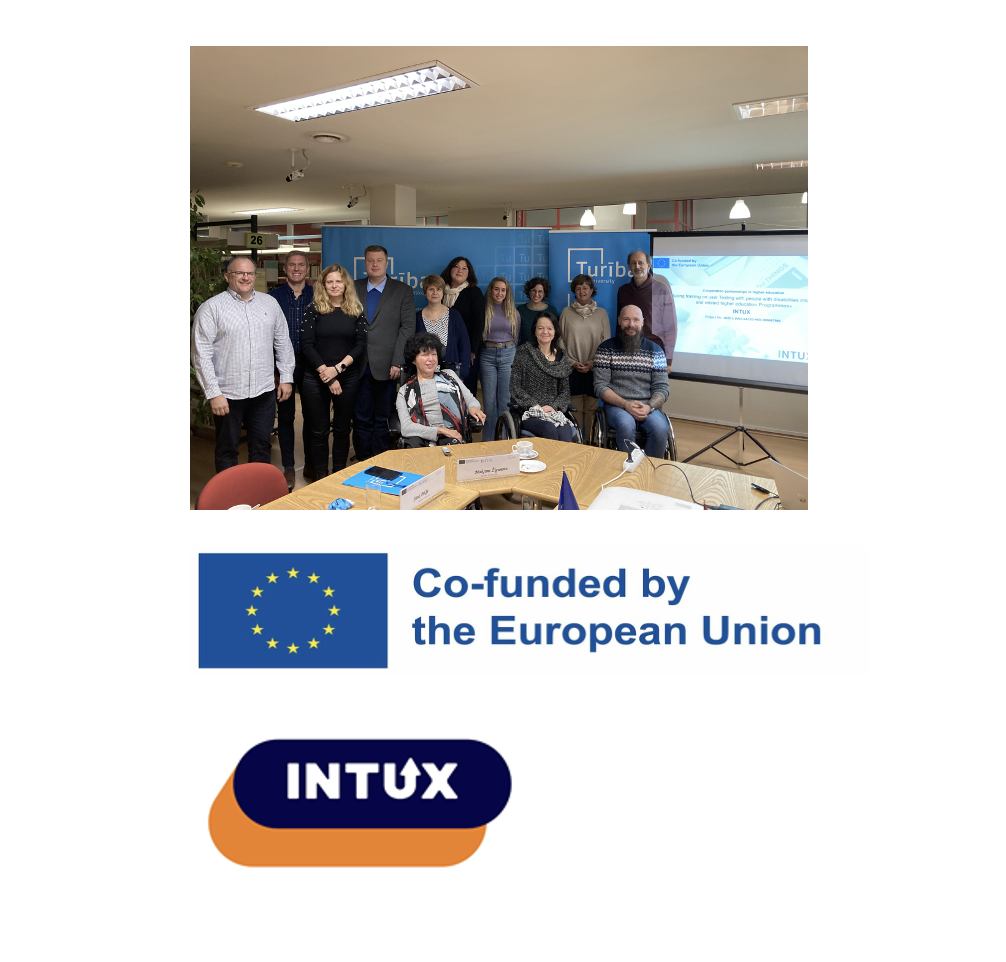NEWS
ERASMUS+ Cooperation Partnership project INTUX has come to an end

ERASMUS+ Cooperation Partnership project INTUX has come to an end. Over two years, Turība University, in collaboration with partners from Spain, Latvia, Sweden, and Slovenia, aimed to develop and implement educational modules in universities on user experience design that is accessible and suitable for people with special needs.
During the project's implementation, Turība University, the University of Maribor, the Polytechnic University of Madrid, the Autism Association of Seville, the National Council of Disability Organizations of Slovenia, the Latvian Organization for People with Special Needs SUSTENTO, Funka Nu AB (in the initial phase of the project), and the Funka Foundation conducted extensive research to identify best practices in user experience testing. They tested these practices by involving people with special needs, developed educational materials and a handbook for educators, created practice-based user scenarios, and evaluated the developed materials with the involvement of students, lecturers, and people with special needs. One of the project's final outcomes was the creation of recommendations for more inclusive user testing in higher education UX design programs.
In four seminars held in Latvia, Spain, Slovenia, and online, targeting participants from across Europe, project partners emphasized the importance of inclusive user experience testing in the digital age, shared their experiences, and demonstrated the project's results.
This project highlights both the importance of digital accessibility for people with special needs and the need to empower people with special needs to contribute to user experience testing, thereby helping website and application developers to promote an inclusive digital environment.
The results of the project can be found on the INTUX project website
The project is financed from the ERASMUS+ program. Project number: 2022-1-LV01-KA220-HED-000087964

